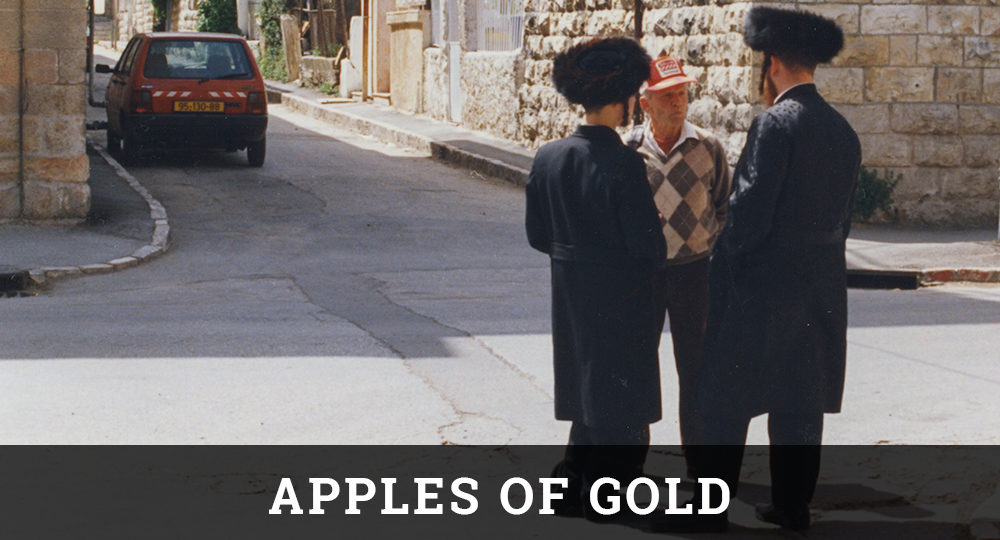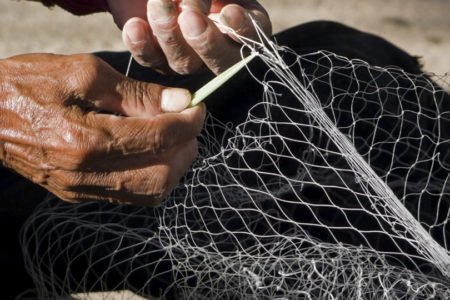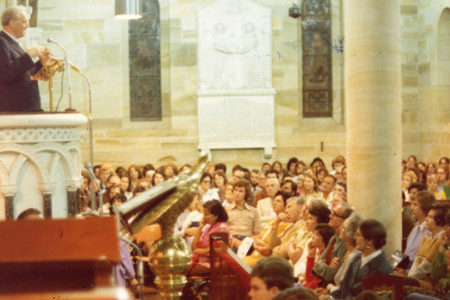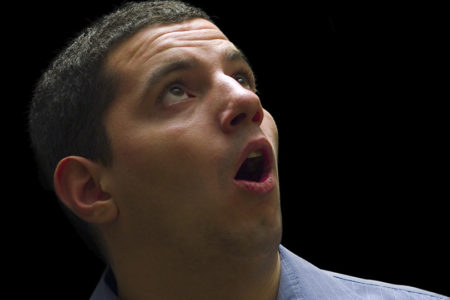Zvi Sep/Oct 2010
I recently had a big surprise. From time to time I go to the ultra-Orthodox synagogues where I have long, involved discussions about faith in the Lord. You cannot go there and immediately begin telling people about Jesus. It is a difficult situation for which you must have much patience. When I question what they believe, or when they start to understand in whom I believe, these people usually become angry and even threaten to throw me out.
Recently I met several men who attend one of the big ultra-Orthodox synagogues I have visited, and we spoke for quite a while. Then the discussion turned to the Holocaust of World War II. “If you had gone through what some of us went through in those days, you would not speak about such things as you do,” one told me.
“I passed through all the seven halls of hell,” I replied. “And not a day went by that I was not jealous of those who had died. I was a skeleton. And if that were not enough, I was beaten almost to death by the Gestapo. And all this began when I was 10 years old.”
Now they all were paying attention. “We would like you to come to our great synagogue and speak about what happened to you so long ago,” one said. And to my surprise, I received an invitation to speak there! Here was an opportunity to tell them about the Lord. God had made a way for me to discuss such a difficult subject in their most ultra-Orthodox place.
When I arrived at the synagogue, they welcomed me warmly and listened intently to everything I had to say about the Holocaust. Then came the questions: “What synagogue do you attend? Who is your rabbi? Which rabbi taught you to pray?”
I was waiting for them to ask because, if I had mentioned the Lord, they would have become angry. But because they brought up the subject, I had an opportunity to give them my entire testimony, explaining how I came to know the Lord our Savior, Jesus Christ. Of course, I could not say Jesus Christ, but rather, Yeshua Hamashiach in Hebrew.
As soon as I mentioned Yeshua they all became incensed and shouted at me. “This is the biggest insolence against heaven!” one yelled. “This is what you dare say now in this holy place?”
“But you asked me who my rabbi is and how I came to know God,” I said. “I read the Holy Bible and slowly started to know the Lord and receive Him as my own Savior. Why? Because I read Isaiah 53, where it is written, ‘He was wounded for our transgressions, He was bruised for our iniquities; the chastisement for our peace was upon Him, and by His stripes we are healed’” (v. 5).
They were extremely surprised and began asking many questions. And, of course, I was ready. This was not the first time I have been asked such questions. I told them I do not need their many rabbis to tell me how to dress and think. I have the Lord and His Word. I led them to Deuteronomy, where it is written, “Hear, O Israel: The Lᴏʀᴅ our God, the Lᴏʀᴅ is one! You shall love the Lᴏʀᴅ your God with all your heart, with all your soul, and with all your strength. You shall not go after other gods, the gods of the peoples who are all around you (for the Lᴏʀᴅ your God is a jealous God among you)” (6:4–5, 14).
They know these verses well because they pray them every morning. Yet they do not understand what they say because they are blind to the truth. They revere their rabbis so much they have practically turned them into gods, believing only what the rabbis tell them instead of what they read for themselves in God’s Word.
“Whom are you following?” I asked them. “Do you see what is written here? I believe in the living God, not as you. I follow the living God, not men.”
Then they asked how I came to such an understanding of Scripture. I told them, “I do not read books written by rabbis, fictional stories made up by men. I read only what was written by the Holy Spirit of God. What He wrote is what is important. And I believe it. Is this not good enough for you?”
This time they had no reply. They became friendly again, and we finished our long conversation. They were nice to me, and one told me, “This is not the last time we will speak. We will see you again.” I hope so.







